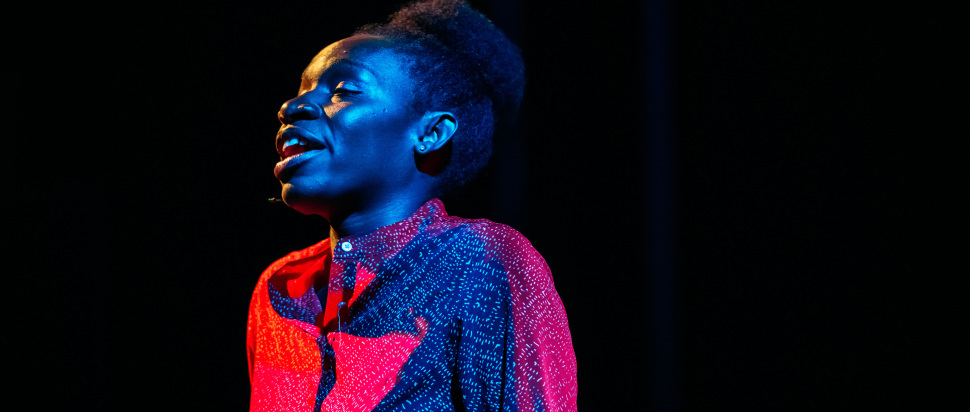Apphia Campbell on new play Through the Mud
Apphia Campbell speaks about her upcoming show, Through the Mud, an intergenerational story about the struggle for civil rights
As a veteran of the Scottish theatre scene and beyond, Apphia Campbell's solo work is known for its vigorous engagement with Black culture and history, as well as for stunning performances and vivid storytelling. Having adapted her solo show, Woke, for two performers, Campbell now prepares to re-envision the piece in today's context.
Through the Mud follows two Black women living 42 years apart – one, a present-day university student, and the other, famous Black Panther Assata Shakur. As both characters become involved in growing movements for liberation, the narratives weave together to ask vital questions about how justice is won and protected.
On bringing in second cast member Tinashe Warikandwa, Campbell says: "I've really enjoyed seeing Tinashe's take on the Ambrosia character. There's an innocence that she brings to the character that I find so interesting to watch, and so engaging as well. It's been really wonderful to see her, and the choices that she makes that are different from mine, and being able to expand the story and find Assata's journey in a different way. I've really been enjoying that journey." The intergenerational links between the two characters speak to the necessity of memory and oral history in political movements; when so much has been silenced, twisted, and scrubbed out of public consciousness, how do we even know what questions to ask?
"There was a question I had for myself – is this still really relevant?" Campbell says. "Is this knowledge that everyone has? The Black Lives Matter movement with George Floyd was a huge transitional time for that movement, and I think for the world as a whole." Campbell talks about how these pivotal moments – so often moments of horror – can push us to ask harder questions.
"Asking those questions like, how do we move forward? How can we create a system that's equitable for everyone? And I think that the piece still asks those questions and tries to understand how we can move forward with that." Both characters in Through the Mud are criminalised for their participation in political movements. I cannot help but think now of what is happening in Gaza at the moment of my writing. The parallels between what happens to the characters in Through the Mud and what is happening in our current political consciousness makes Campbell's work all the more timely.
Campbell remarks, "It's heartbreaking. I feel like the older I've gotten, you just realise peace is so fragile." That fragility seems to reside at the heart of our discussion; we are so constantly inundated by horrors that we feel powerless to change. But, Campbell wonders, how do we turn those feelings into actions? And how do we find solidarity in those feelings? "And if I were a refugee, how would I want people to see me? How would I hope the world would reach out to help me?"
Through the Mud reaches not for a solution, but for something more empowering. It emboldens the audience to think of their own position in relation to these movements, to liberate Blackness and racialised experiences from the constraints that seek to define them.
Above all, Campbell hopes that audiences leave the theatre wondering, "What starts a movement? What ignites a movement," and how can we all be a part of it? "And I hope that people walk away with more questions and then maybe start seeking the answers for themselves."
Through the Mud, Royal Lyceum Theatre, Edinburgh, 2-4 Nov, £10-26
